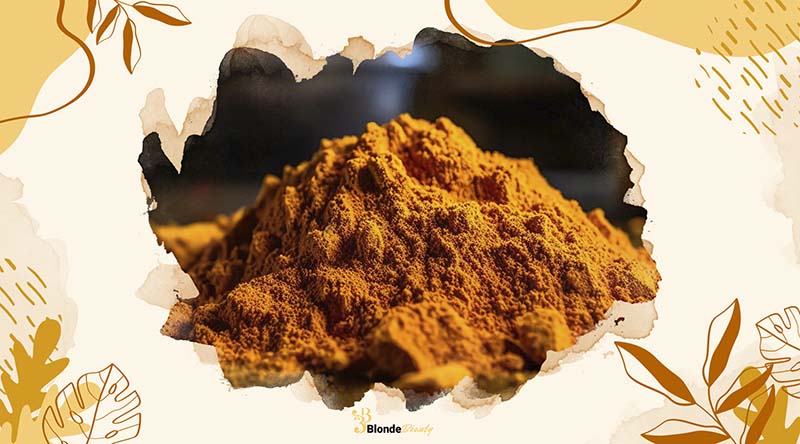Erectile dysfunction (ED) is a widespread concern, leading many to seek natural remedies for relief. Among these, turmeric has captured attention for its potential benefits against ED, prompting the question: “Does turmeric help with erectile dysfunction?”
This blog explores the scientific evidence surrounding turmeric’s capabilities to enhance not just the overall but also your sexual wellness.
We explore the role of this powerful spice in traditional medicine and its promise for improving intimate life, guiding you through the complexities of ED and the potential of natural solutions like turmeric.
You should also read the following articles:
- Does Ashwagandha Help with Testosterone? How to Use.
- Does Frequent Sex Increase Testosterone? Other Benefits.
- Does Tight Underwear Affect Erectile Dysfunction? Insight.
Does Turmeric Help with Erectile Dysfunction?
Approximately 30 million men in the United States alone face the challenges of erectile dysfunction (ED), a prevalent condition with no universal remedy due to its varied causes. Treatment strategies can range from pharmaceutical interventions to alternative therapies.
In recent discussions, turmeric, particularly its active component curcumin, has been highlighted for its anti-inflammatory properties, cardiovascular benefits, and antioxidant capabilities, sparking interest in its potential applications for health enhancement.
Yet, the evidence linking turmeric to sexual health improvements, particularly ED, is limited and primarily based on animal studies. Therefore, relying solely on turmeric for ED treatment is not advised at this stage.
Even though turmeric might not fix ED by itself, it’s still good for you in other ways and can be part of eating healthy. Adding turmeric to your diet might help your overall health, which is good for your sex life too. But remember, talk to a doctor before you start any new supplement or make big changes to what you eat or how you take care of yourself.

Should I Use Turmeric to Improve My Erectile Dysfunction?
Utilizing turmeric as a remedy for erectile dysfunction (ED) is not recommended. Despite the myriad of health benefits associated with turmeric, it is prudent to consult with a medical professional for ED concerns.
Erectile dysfunction may serve as an indicator of underlying serious health conditions, including diabetes and cardiovascular diseases, which necessitate professional medical evaluation and treatment.
Therefore, individuals experiencing symptoms of ED are advised to seek guidance from a healthcare provider. This ensures access to appropriate treatment options and facilitates the identification of any significant health issues contributing to the condition.

How to Drink Turmeric for the Best Result
- Golden Milk with Turmeric: Golden Milk is a traditional Ayurvedic remedy, revered for its wound-healing properties. To prepare, lightly warm a half teaspoon of turmeric paste with a couple of drops of ghee or coconut oil. Then, mix in your milk of choice. For enhanced absorption of turmeric, consider adding a pinch of black pepper. If you’re looking for a bit of sweetness, honey and cinnamon powder make great additions. For those who enjoy a bit of texture and extra nutrition, throw in some nuts and seeds. It’s a perfect beverage to enjoy before bedtime.
- Turmeric Tea: For a simple yet potent addition to your diet, try Turmeric Tea. Start by boiling water in a small saucepan. Stir in either a quarter teaspoon of turmeric powder or an equal amount of freshly grated turmeric. Allow the mixture to simmer briefly, then enhance it with a splash of fresh lemon juice and a bit of honey for a delightful mix of flavors. This tea is an easy way to enjoy turmeric’s benefits.
- Turmeric Smoothies: Revamp your morning routine by introducing turmeric into your breakfast smoothies, a change from the usual coffee kickstart. Turmeric, known for its anti-inflammatory and immune-boosting properties, makes an excellent addition to various smoothies. Sprinkle a pinch of turmeric into smoothies made from berries, mango-peach with coconut water, strawberry-kale-orange with almond milk, or pineapple-coconut with chia seeds. This simple tweak can significantly enhance your health over time.
Notes When Using Turmeric
While turmeric is celebrated for its health benefits, it’s essential to use it wisely, especially if you’re considering it as a supplement. Curcumin, turmeric’s active component, can interact with certain medications and health conditions, so caution is needed.
Turmeric acts as a blood thinner, which means it’s not advisable to combine it with blood-thinning medications. Doing so could increase your risk of excessive bleeding or bruising. This interaction might also affect how well your medications work.
If you’re taking any of the following blood thinners, it’s particularly important to be cautious with turmeric:
- Apixaban (Eliquis)
- Aspirin
- Cilostazol
- Clopidogrel (Plavix)
- Dabigatran (Pradaxa)
- Eptifibatide (Integrilin)
- Heparin (Innohep)
- Ibuprofen (Advil, Motrin, and others)
- Parsugrel (Effient)
- Naproxen (Anaprox, Naprosyn, and others)
Potential Side Effects of Using Turmeric
Turmeric, while beneficial for many health aspects, should be used with caution or avoided entirely in certain conditions due to its potential risks:
Liver Health Concerns
Concerns exist regarding turmeric’s impact on the liver, especially for individuals with pre-existing liver conditions.
Turmeric supplements, in particular, might aggravate liver damage or compromise liver function in susceptible individuals. It’s advisable for those with liver issues to avoid turmeric supplementation to prevent potential harm.

Bleeding Disorders
Turmeric’s anticoagulant properties may increase the risk of bruising and bleeding in people with bleeding disorders.
This risk is particularly significant for those taking injectable anticoagulants, as turmeric could enhance the medication’s effects, potentially leading to excessive bleeding.
Lack of Iron
High doses of turmeric may interfere with the body’s ability to absorb iron, posing a challenge for individuals with iron deficiency. Turmeric usage in such cases could exacerbate the condition by inhibiting the absorption of necessary iron.
In these situations, the risks associated with turmeric can outweigh its benefits. It’s crucial to consult a healthcare professional before incorporating turmeric into your diet or health regimen, especially if you fall into any of these categories.
Side Effects Of Using Turmeric
Turmeric is often celebrated for its numerous health benefits, but like anything, it can have side effects, especially when taken in large doses or by individuals with certain health conditions.
Some people might experience gastrointestinal side effects from turmeric, including nausea, diarrhea, and abdominal pain. These side effects are more common with high doses of turmeric. To help reduce the risk of such discomfort, it’s a good idea to add turmerics into your daily meals.
Additionally, allergic reactions to turmeric, such as skin issues like dermatitis, have been reported in some cases. This highlights the importance of monitoring for any adverse reactions when starting to use turmeric, particularly if applied topically or ingested in large quantities.
Given turmeric’s potential to affect preexisting conditions—like interfering with blood clotting or affecting liver function—it’s crucial to consult with a healthcare provider before incorporating it into your diet or health regimen. This step is especially important for individuals already managing health issues or those on medication, to avoid any negative interactions or side effects.
How Much Turmeric Should I Take For Health Benefits?
For individuals seeking the health advantages of turmeric, specifically its key component, curcumin, recommendations from authoritative bodies like the World Health Organization (WHO) and the European Food Safety Authority (EFSA) provide some guidance. They advise that consuming up to 3mg of curcumin per kilogram of body weight daily is considered safe. This means a person weighing 70 kg (approximately 154 lbs) could safely ingest up to 210 mg of curcumin each day.
It is crucial to recognize, however, that the precise quantity of turmeric or curcumin required to achieve certain health outcomes is not consistently determined across all studies. Factors such as the individual’s health, the specific health issue being addressed, and the turmeric or curcumin format (like supplements, powder, or raw root) can influence the efficacy and recommended safe dosage.
Conclusion
Turmeric, known for its vibrant color and numerous health benefits, is an affordable and generally safe option that may offer some relief for individuals dealing with erectile dysfunction (ED). The herb’s potential to improve certain bodily functions related to male erections, coupled with its anti-inflammatory properties, presents a promising avenue for research. This is especially relevant considering inflammation and obesity are known risk factors for ED, and turmeric may help in managing these issues.
However, the impact of turmeric on ED and overall health is still under study, and more clinical research is needed to fully understand its benefits and how best to use it for health purposes.
If you’re considering adding turmeric to your diet, it’s crucial to first consult with your healthcare provider. This step is important to ensure that turmeric does not interfere with any medications you might be taking or exacerbate preexisting health conditions.
Turmeric is versatile and can be found in various forms, including capsules, teas, or as a ground spice, making it easy to add to your diet. If ED is a concern for you or your partner, discussing how turmeric could potentially be included as part of a broader treatment strategy with your doctor is a wise approach.
For more insightful articles on health and wellness, be sure to explore additional blogs from Blonde Beauty.

Laureate Professor Clare Collins
Professor Clare Collins is a leading expert in nutrition and dietetics at the School of Health Sciences, part of the College of Health, Medicine and Wellbeing. Her work is changing the way we think about food and health. She grew up as one of nine children and was the first in her family to finish high school and go to college. This background gave her a strong work ethic and a deep appreciation for seizing opportunities.
As the Director of the Hunter Medical Research Institute’s Food and Nutrition Program and a recipient of three NHMRC Research Fellowships, Professor Collins is making a big difference in public health. She focuses on helping people who are often overlooked, using new technologies like apps and online programs to improve their nutrition and reduce the risk of chronic diseases.
Professor Collins is well-respected and has been recognized as a Fellow in four major health and science organizations. She leads a diverse team of experts, including dietitians, computer scientists, and engineers, working together on global health projects.
Her achievements are impressive. She has received over $29 million in research funding, published more than 450 papers, and helped 35 PhD and Master’s students complete their degrees. She’s also active in sharing her knowledge with the public. She has developed tools like the Australian Eating Survey and the Healthy Eating Quiz, and she often appears in the media to talk about nutrition.
PUBLISHED ARTICLES
- Collins, C. (2019). “The Effect of a Pilot Dietary Intervention on Pain Outcomes in Patients Attending a Tertiary Pain Service.”
- Collins, C. (2022). “Variation in cardiovascular disease risk factors among older adults.”
- Collins, C. (2022). “Evaluation of an online intervention for improving stroke survivors’ health-related quality of life: A randomised controlled trial.”
These articles show Professor Collins’s commitment to understanding how better nutrition can improve health. Her work is important for researchers, doctors, and anyone interested in healthy living.
